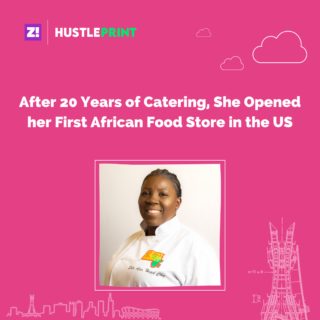If you grew up in Nigeria, you’ve probably heard about the series of crises in Jos. But before the crisis, what do the people who lived in Jos remember about growing up there?
Below, six Nigerians: Plangkat, aged 25, Chung, aged 35, Simi, aged 43, Tsusulo, aged 23, Zhamani, aged 28 and Chukwak, aged 21, share their nostalgic memories of growing up in J-town.
Plangkat: I was born in Dogon Dutse in Jos Central. Our compound had missionaries who planted a lot of trees. There were mangoes, cashew, tangerines, grapes, and avocados all lined up the compound. Fresh fruits and vegetables were never an issue.
Before my family had to leave, Jos was everything. I miss eating fluffy masa and suya, fried or boiled awara (tofu) and drinking kunu.
Chung: Ah yes, the serenity in Jos was unmatched before 2006. I grew up in a town called Bukuru. What I found most beautiful was how multiple tribes coexisted as a community. Even though our religions were different, there was no division. Everyone looked out for each other. One of my favourite memories is walking down to church with my friends every Sunday.
Simi: Do you remember Nzem Berom?
Chung: Nzem Berom is usually before or after Easter to welcome the rainy season in Jos. Then there’s Pusdung (Chala Day). People in the communities would dance and perform acrobatics while masquerades called Nwang roamed the streets. Every ethnic group had their own way of celebrating, but one common thing with the festivals were the flute dancers.
ALSO READ: 5 Cultural Festivals in Nigeria That Are Always Lit
Simi: I don’t think you can talk about Nzem Berom and not mention food though. I tasted dog meat for the first time during one of the festivals.
Chung: There’d be pork and chicken too. And to add to Plangkat’s love for masa, I’d say tere (a dish that looks like maize porridge) did it for me — the garden egg, pepper and fresh hibiscus leaves. Nah, tere was delicious.
Sines [green caterpillars] is a snack I remember too. Once the rain starts and maize is planted, we’d wait for sines to latch on the leaves. Then they’re fried and doused in pepper — yum, tasty and medicinal.
Zhamani: Jos was definitely the place to be in the late 1990s. People came from all parts of the world to benefit from the tin and columbite mined in Jos then. I grew up with Yoruba, Igbo, Ijaw, Urhobo and Ibibio friends. I even had friends all the way from Sierra Leone and Europe.
Tsusulo:
Zhamani: LOL. I totally agree. I remember moving to Jos as a kid, and the cold was shocking. Taking a bath was an extreme sport because, in less than five minutes, the water became ice-cold. So we’d have to bathe as quickly as possible.
Plangkat: Sometimes ice shards came with the cold rain. You could hear them hitting the rooftops. Oh, and the strawberries. How did I skip those? It was so cold that we could grow strawberries and grapes. I miss running around and eating strawberries with my friends.
ALSO READ: 13 Exotic Fruits And Vegetables That Grow Only In Jos
I haven’t been able to connect with people like I did in Jos. As an introvert, making new friends has been difficult since the crisis. I’ve been struggling with the trauma of watching people in my community killed.
Zhamani: What I miss the most is football with my guys from the barracks. I remember playing for Bassa Local Government during the under-13 leagues at Rwang Pam stadium. I can still remember footballers from Mighty Jets and El-Kanemi — our local team — watching me play.
Chuhwak: Well, I grew up in Jos South and I remember braiding the grass around my house. That’s how I learnt to braid my hair. I miss the peace.
Chung: Me too. I wish I could eat bubal right now. Bubal is like the jollof rice of Jos — it’s for special occasions like weddings or Chala Day.
Tsusulo: You’ve talked about food like five times Chung.
Chung: Even though —
Chuhwak: LOL. I can’t deny that enjoying free food during Christmas and Sallah made sense. No one cared about the religious difference. I still live here but Christians are a lot more guarded these days.
Simi: I’d love to experience one more Nzem Berom festival. I really miss J-town.
Plangkat: Me too. But I’ll always cherish what we had before we had to leave everything behind.
RELATED: Of the Best Things We Have Heard About Living in Jos




